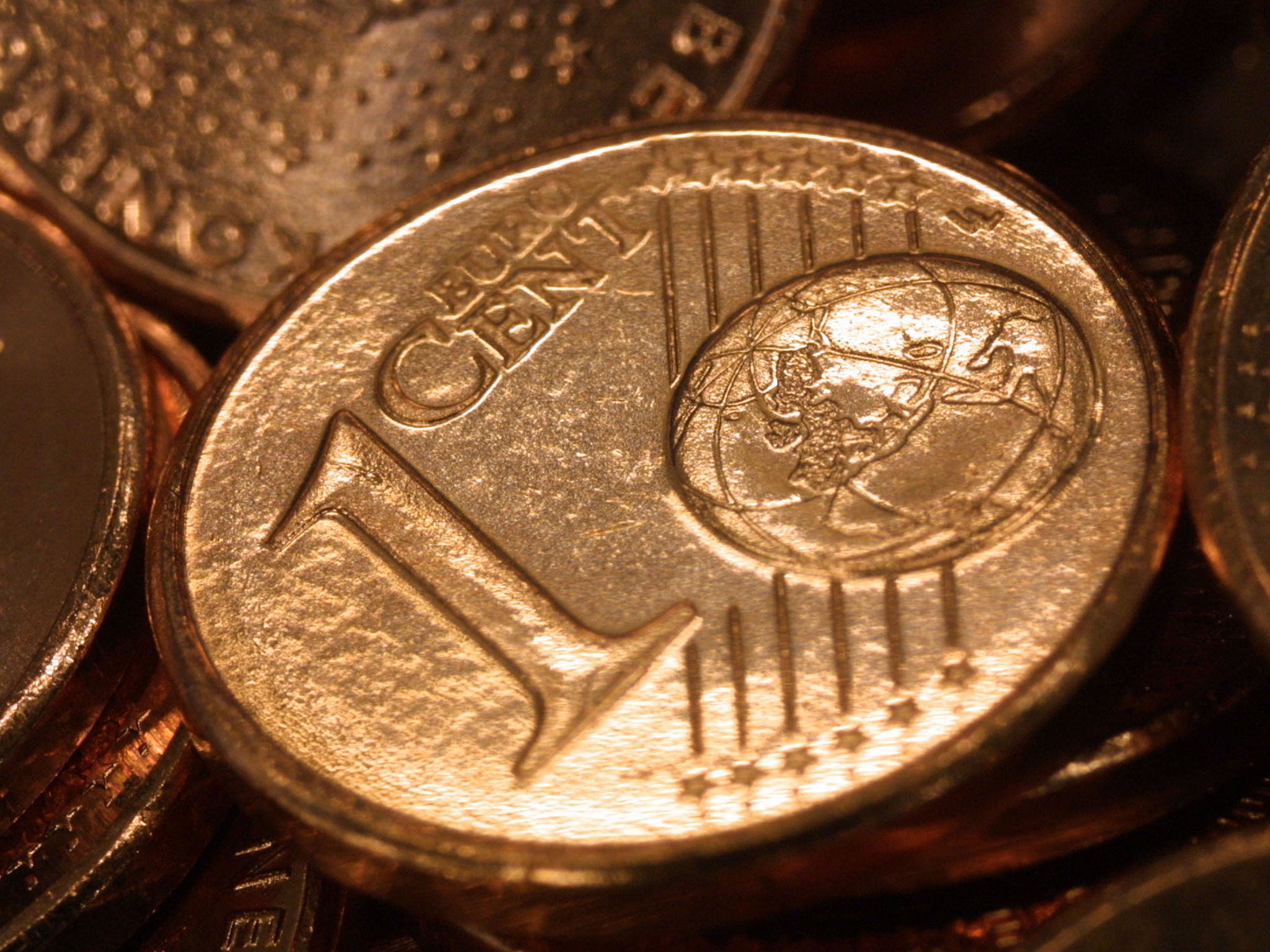
Your support helps us to tell the story
From reproductive rights to climate change to Big Tech, The Independent is on the ground when the story is developing. Whether it's investigating the financials of Elon Musk's pro-Trump PAC or producing our latest documentary, 'The A Word', which shines a light on the American women fighting for reproductive rights, we know how important it is to parse out the facts from the messaging.
At such a critical moment in US history, we need reporters on the ground. Your donation allows us to keep sending journalists to speak to both sides of the story.
The Independent is trusted by Americans across the entire political spectrum. And unlike many other quality news outlets, we choose not to lock Americans out of our reporting and analysis with paywalls. We believe quality journalism should be available to everyone, paid for by those who can afford it.
Your support makes all the difference.
The European Union is leaving the euro, almost. Desperate to save pennies as the crisis continues, the EU is mulling phasing out one and two-cent euro coins after it emerged they cost more than their face value to mint.
The bloc’s legislative arm, the European Commission (EC), announced proposals last week to ditch the lowest-value coins in the 17 members of the single currency, arguing that the difference between the value of the coins and their cost to manufacture and distribute had reached €1.4bn (£1.1bn). But opposition is growing, with the German broadcaster, Deutsche Welle, reporting yesterday that German citizens were keen to keep their precise pricing.
The concern is that prices will be rounded up on products which lure consumers with the psychological “99 cent” barrier – people would, for example, be much more inclined to buy a €3.99 tube of toothpaste than a €4 tube, despite the minuscule price difference. However, evidence from nations such as Finland and the Netherlands which have largely phased out the coppers actually shows very little difference in overall pricing.
Carsten Brzeski, a senior economist at ING in Brussels, told Reuters: “If you think about the psychology of price, I think you’ll rather see a rounding down to 95 cents than an upward adjustment.”
The fate of the 45 billion one and two-cent coins in circulation will be decided after consultations between the EC and member states. Another option on the table is to start minting small-value coins with cheaper materials, scrapping the current method of producing iron coins coated in copper.
Join our commenting forum
Join thought-provoking conversations, follow other Independent readers and see their replies
Comments